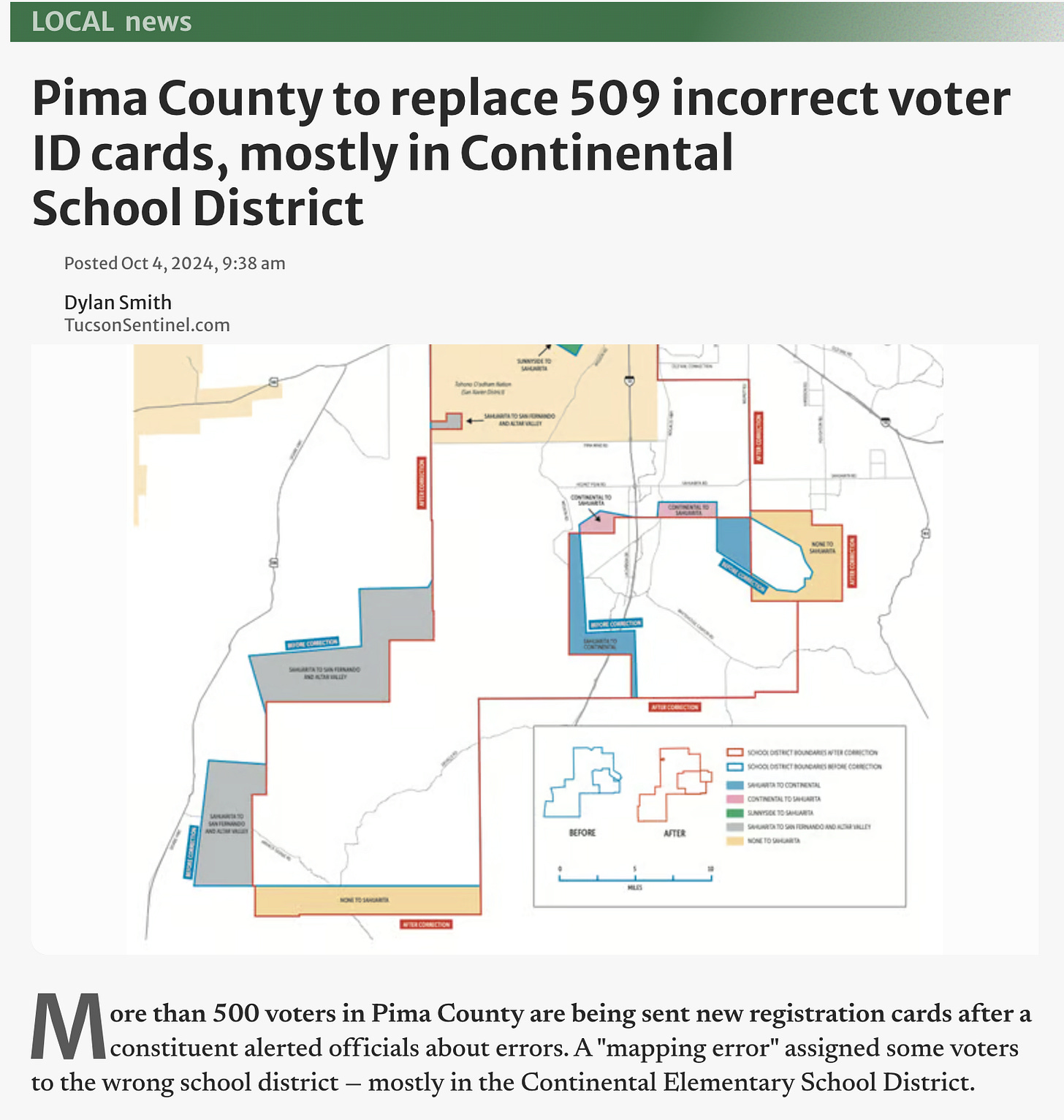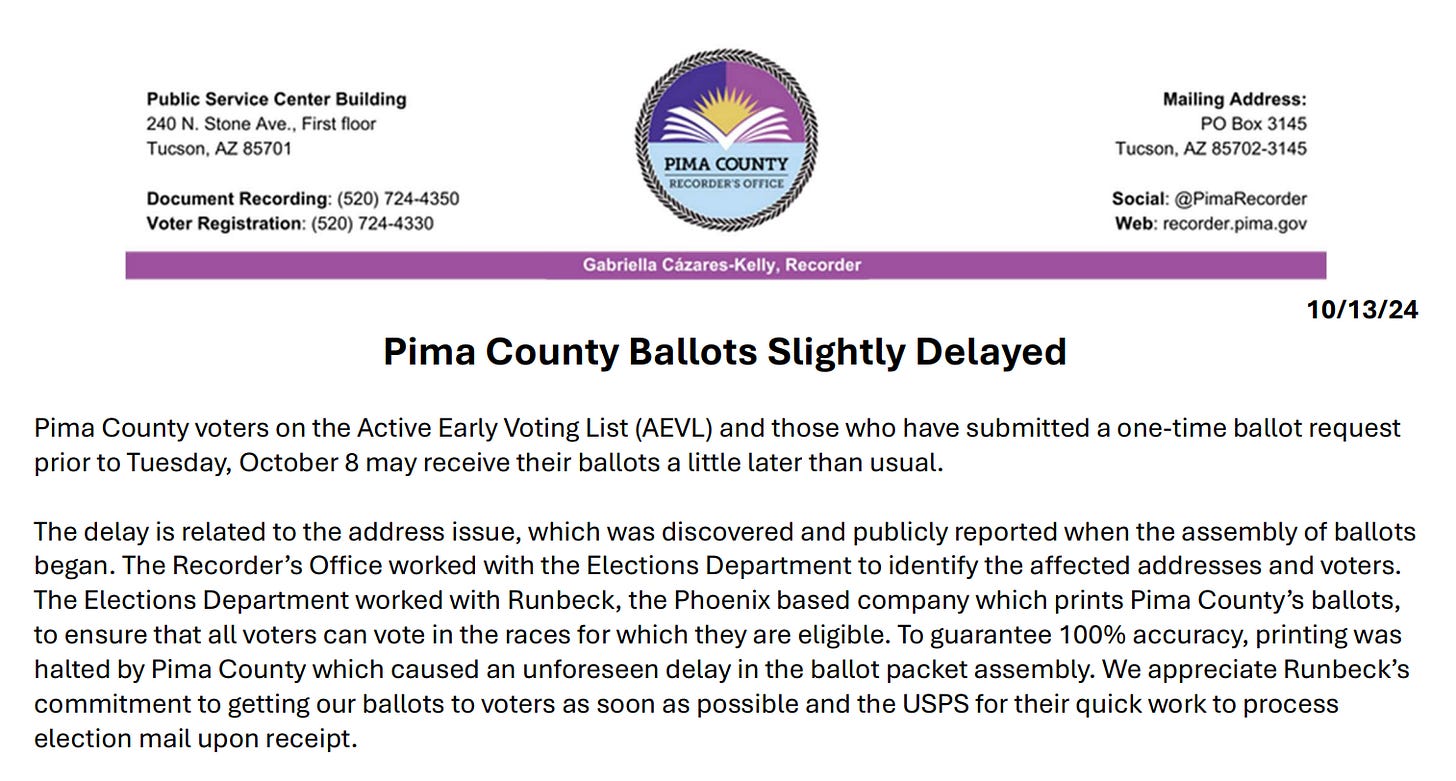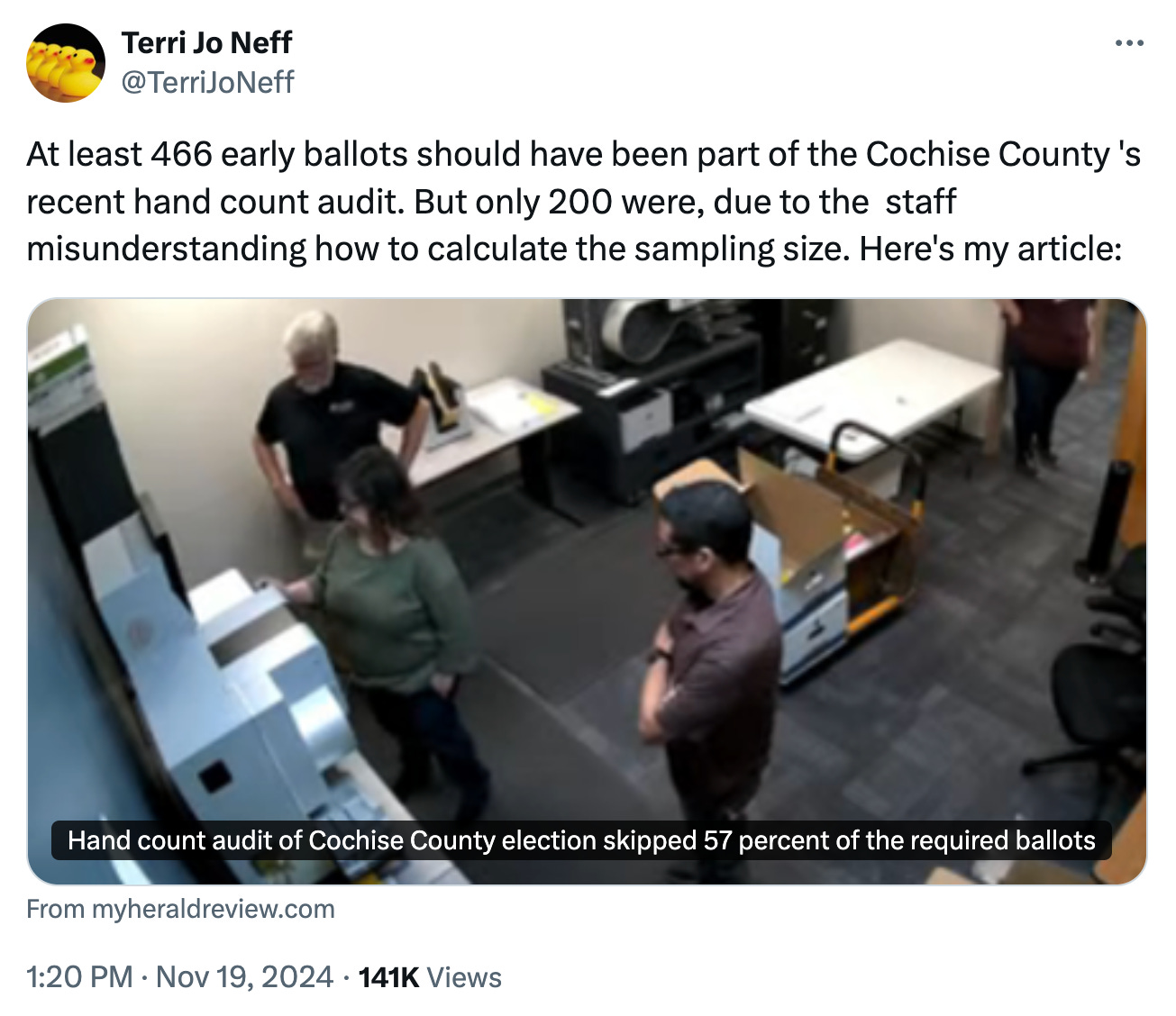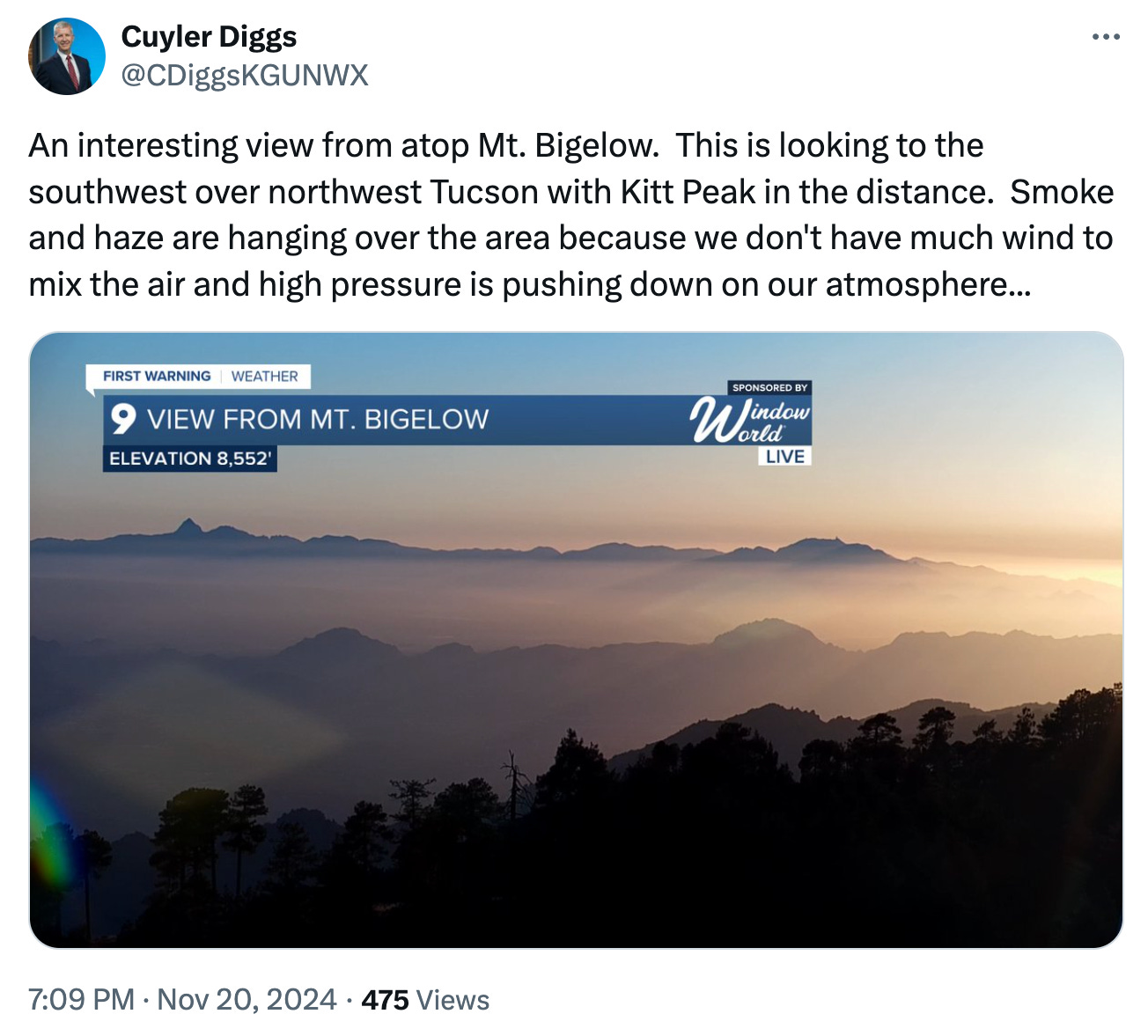How the dominoes fell
Recorder explains what happened with early ballot portal ... Supervisors want more detail ... Embezzlement charges filed in Santa Cruz County.
The Pima County supervisors stopped short of calling for an investigation of the county recorder on Tuesday.
But at least three supervisors want more details about the events that led up to the recorder closing the online portal where voters can request early ballots a few weeks before the November 5 election.
Supervisor Steve Christy asked for an investigation by the Attorney General’s Office or a non-conflicted county attorney, saying he worried his Democratic colleagues would “sweep it under the rug” to protect an elected official from their party.
He wasn’t able to drum up any support for the investigation. His motion was voted down 4-1.
Although Supervisor Rex Scott said he didn’t see any reason for an outside investigation, he urged Recorder Gabriella Cázares-Kelly to provide “robust detail” in the after-action report from her office to address all the issues raised at Tuesday’s meeting.
Supervisor Matt Heinz made sure to ask Cázares-Kelly the big question of the moment: Did every voter who wanted an early ballot get one, and end up being able to vote?
Unfortunately, that question doesn’t have a solid answer yet. After Heinz pressed her several times, Cázares-Kelly said her staff had “whittled down our list,” but she didn’t “know the final numbers” because they were still processing the election results.
Heinz asked her to notify the supervisors whenever that number was clear.
Dominoes falling
The timeline the supervisors heard from Cázares-Kelly, both at the meeting and in a press release her office sent out Tuesday morning after Christy said he planned to call for an investigation, involved poor information sharing among at least four county departments.
The communication snafu, combined with widespread mistrust of the elections system, led to “panic” from voters when their early ballots were delayed, Cázares-Kelly told the supervisors.
She said many of the events that led up to her office’s decision to close the online portal, amid a flood of more than 20,000 ballot requests, were “beyond our control and not nefarious in any way.”
It all started two decades ago, when somebody at the treasurer’s office drew the boundaries wrong for a local school district, she said.
When the treasurer’s office discovered the boundary error, they spoke with the assessor and changed the district boundaries in the county’s GIS system.
They didn’t realize the change would affect ballots, and didn’t talk to the recorder or the elections department until the last minute, she said.
On the day the Recorder’s Office was supposed to send their list to the ballot printer in Phoenix, she got a phone call from the treasurer about the boundary changes, just one hour before the deadline.
“That put an immediate hold on all of the data we were trying to send to the printers at that time,” she said.
She immediately contacted the elections department, who told her a small group of voters would be affected. The issue had to do with ballot style, elections officials told her, which is not the responsibility of the recorder.
But they couldn’t finalize the ballot styles until that was worked out, so the printing was delayed. That delayed early voting, which is her responsibility.
“We were in a situation where we either send out the wrong ballots and then have to correct that in some way, or those ballots were delayed,” she said.
By the time the county was ready to print, their delay was interfering with the printer’s other deadlines and the printer had to scramble to assemble the ballots.
Even before then, in August, her office was getting angry phone calls about ballots.
“The amount of stress and anxiety that people were having, the public was having, was already unreal,” she said. “So then if you have a one-day delay, or a two-day delay, it just made everyone so concerned.”
On top of that, the post office was closed for Indigenous Peoples Day, which added another day to the delay, she said, making people “incredibly impatient and angry and upset,” she said.
Then they went to the recorder’s website and “flooded our website by putting in multiple requests,” she said.
There is so much to keep track of here, isn’t there? We’ll help you untangle it all as the situation gets sorted out.
Over the following days, her office handled thousands of requests, the majority of which were duplicate requests.
The Recorder’s Office ended up being overwhelmed, she said, so they closed the online portal and told voters to call their office instead.
After a question from Scott, she said they did not consult with the county attorney or Secretary of State before they closed the portal. However, the next day they asked for legal advice and they were reassured that they acted legally.
As for the after-action report that will provide the official account, the officials at Tuesday’s meeting didn’t set a date for when that would be released. After the 2022 general election, it was released in mid-December.
Charges filed: After months of investigation and lawsuits over a $39 million embezzlement scheme, former Santa Cruz County Treasurer Liz Gutfahr now faces criminal charges, the Nogales International reports. Federal prosecutors charged her on November 19 with embezzlement by a public official, money laundering, and tax evasion. She’s scheduled to appear in federal court in Tucson today.
Money keeps flowing: Former University of Arizona President Robert C. Robbins got a $40,000 bonus while on sabbatical, on top of his presidential salary, the Arizona Daily Star’s Prerana Sannappanavar reports. The Arizona Board of Regents also gave John Arnold, their former executive director who now holds two top positions at the UA, bonuses worth $160,000. Robbins stepped down in September as the UA was dealing with a financial crisis. The bonuses were connected to Robbins and Arnold being part of the executive team that hit goals set by the regents for the 2023-34 school year.
Undervotes: About 7% of Pima County voters skipped the races for county recorder, sheriff, and treasurer on their ballots, Arizona Public Media’s Zachary Ziegler reports. A whopping 24% skipped the county attorney race, although that one was pretty much decided in the Democratic primary. No Republican ran for that office in November.
School races: The Tucson Sentinel’s Jim Nintzel provides a rundown of election results for local school boards. Like many other county offices this year, most incumbents came out on top in school districts in Tucson, Vail, and Marana.
High marks: A teacher at J. Robert Hendricks Elementary School was named Elementary School Teacher of the Year by the Arizona Science Teachers Association, KGUN’s Tina Giuliano reports. Erica Wofford co-wrote two science units for the state Department of Education, along with her work in her fifth-grade classroom.
"I used to boss my sister around, and play school, and grade her spelling tests. I've always loved school. This is where I thrive,” Wofford told KGUN.
Case study: While the City of Tucson considers establishing its own utility (the city council commissioned a study that should be ready in May), voters in Ann Arbor, Michigan overwhelmingly supported the idea of creating a city-run sustainable energy utility, Canary Media reported. The idea of creating a utility that would supplement the existing grid garnered 79 percent of the vote on November 5. The proposal was drafted by city staff as an opt-in model, and potentially a precursor to a much larger city-owned utility, Michigan Live reported.
12,645: The number of Pima County voters who didn’t get an email from the Recorder’s Office after the online portal was closed because they had already voted, already requested a ballot, weren’t registered to vote, or didn’t provide enough information.









